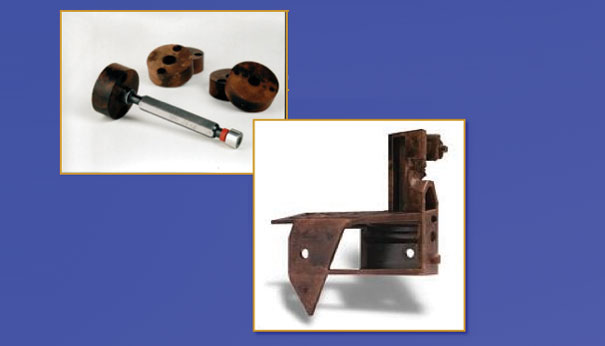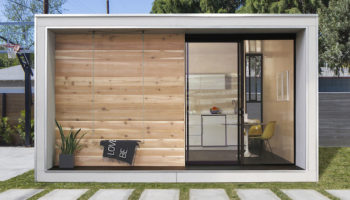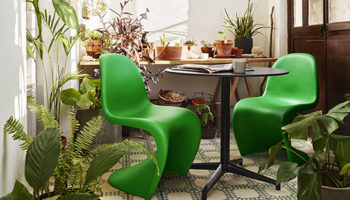Wood and Plastic Reach a Happy Accord in Arboform
Poor, maligned plastic has the weight of the world on it, or so it would seem. With today's growing eco-consciousness, increasing awareness of the un-sustainability of the petro-chemical industry, and the sad fact that nothing persists like the seemingly innocuous plastic bag, the new millennium has spawned a generation of plastic haters. Some municipalities have even outlawed plastic bags. The era of global warming and the cultural awareness surrounding the environment certainly justify this scapegoating, but in some ways, it's a shame.
Arboform. Designed by Juergen Pfitzer and Helmut Naegele for Tecnaro.
For what material is so versatile as simple, moldable, perpetually metamorphic plastic? None until this late summer of 2010, when German scientists Juergen Pfitzer and Helmut Naegele announced the creation of Arboform, "a new material which is a renewable plastic with wood-like qualities, yet can be formed into any shape."
At first listen, that may not sound like any great shakes, but Arboform is a product of multiple mothers (and fathers), most notably, a by-product of paper-making called "lignin," defined by Princeton's Word Net Web as "a complex polymer; the chief constituent of wood other than carbohydrates; binds to cellulose fibers to harden and strengthen cell walls of plants." Even more crucial for our purposes is the revelation that, when combined with resins and flax, lignin forms a plastic-like biomass that "looks and feels like wood and can be used to make several products such as furniture, toys, loudspeakers and even car interiors." And most significantly, since Arboform derives from naturally-occurring sources, it's completely biodegradable. Suffice it to say that I wish the faux-wood linoleum flooring in my current rental were made from Arboform, so much more would it appear like real wood…
Manufacturer Tecnaro further informs us that the above just barely scratches the surface of the eco-potential of Arboform. Lignin itself is "second only to cellulose as the world's most abundant natural polymer"; the byproduct of the pulping industry creates a worldwide volume approaching 50 million tons a year; and the applications are nigh on endless. Anything that has a plastic casing could potentially be constructed from Arboform.
Just look around to identify these sources of eco-renewal: exteriors of computers, TVs, and cell phones; water bottles, dishes and plates, musical instruments, and furniture! Suffice it to say that the product not only holds great promise for the world-at-large, but also for our happy niche of A&D. Nearly anything that relies on injection molding or extrusion could stand to benefit from a dose of the natural, biodegradable components of Arboform.
Via psfk.






Leave a Reply